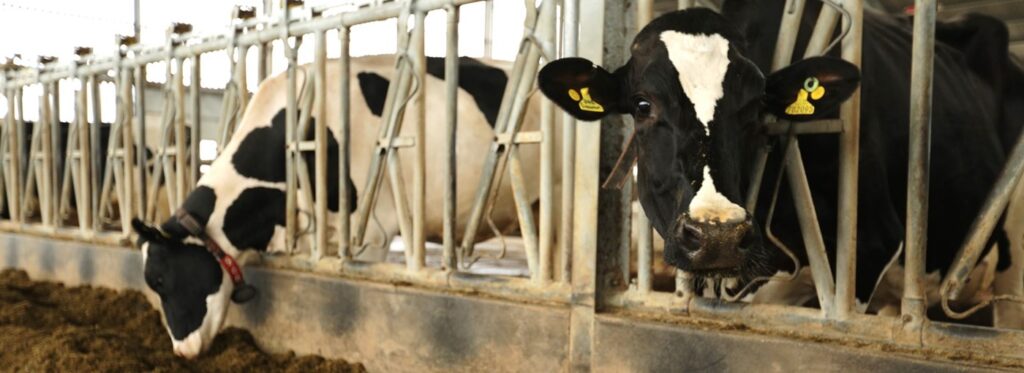A herd of Nottingham cows could soon provide environmentalists with a vital breakthrough in helping tackle climate change.
 Changes being made to the cow’s diet – in a trial commissioned by Tesco and WWF and currently being run by Nottingham University – will determine if their methane emissions can be controlled.
Changes being made to the cow’s diet – in a trial commissioned by Tesco and WWF and currently being run by Nottingham University – will determine if their methane emissions can be controlled.
Tesco and WWF joined forces in a ground-breaking, long-term partnership in 2018 with the aim of reducing the environmental impact of the average UK shopping basket by 50 per cent and improving the sustainability of food while ensuring it remains affordable for all.
Now they are co-funding research at Nottingham University to determine if a natural supplement added to the cows’ diet can crucially alter the gases in their daily belches.
If successful, it is hoped the supplement could reduce methane emissions by as much as 30 per cent.
Even though cows are responsible for just two per cent of the UK’s greenhouse gas emissions, given Britain’s love of milk, it’s clear that finding a way to reduce the amount of methane they produce could lessen their environmental impact.
Tesco Agriculture Manager Tom Atkins said:
“While many people might write off bovine emissions as an unchangeable fact of biology we are confident that something can be done to at least reduce those emissions.
“We believe that as a major food retailer we have a responsibility to try and find a solution so have teamed up with a group of scientists and our partners at WWF to see if by adding a natural supplement to the cows’ diets we can alter their ruminations.
“The supplement has the potential to be rolled out in dairy herds across Tesco’s Sustainable Dairy Group, and help our farmers take further steps to improve the sustainability of the pint of milk you see on the shelves.”
The trials are running at Nottingham University’s state-of-the-art farm where scientists have developed a new method for measuring a cow’s methane output.
Each cow has a digital tag which communicates and records, through high-tec sensors on food bins and milking stalls, food consumption, milk production and most importantly, methane output as she is milked.
The cows are divided into two groups with one being fed their normal diet while the other is fed with the methane-reducing supplement in order to monitor the impact on their methane emissions.
Sean Mallon, Climate Change Specialist at WWF said:
“To tackle the problem of climate change, we need to change how we work and how our businesses operate. With innovation technology we can make our current food systems more efficient or less impactful.
“WWF and Tesco are working together to improve that system from the inside. We want to make it easier for everyone to access an affordable and healthy diet. And we don’t think it has to cost the earth to do it.”
The trials are being led by Phil Garnsworthy, Professor of Dairy Science who has worked at Nottingham University for more than 40 years.
He said:
“What we’re looking to do by using the supplement is reduce the amount of methane the cows release. They’ll still need to belch, otherwise it’s not good for them.
“The supplement has a similar sort of effect to antacid used by humans. We take those because we have an upset stomach but this supplement aids normal processes in the cow’s digestive system.
“It’s more like eating a live yoghurt to improve your gut microbes but this supplement discourages the bacteria in the cow’s gut from producing methane.”
The results of the trial will be known later in July.




Comments are closed.